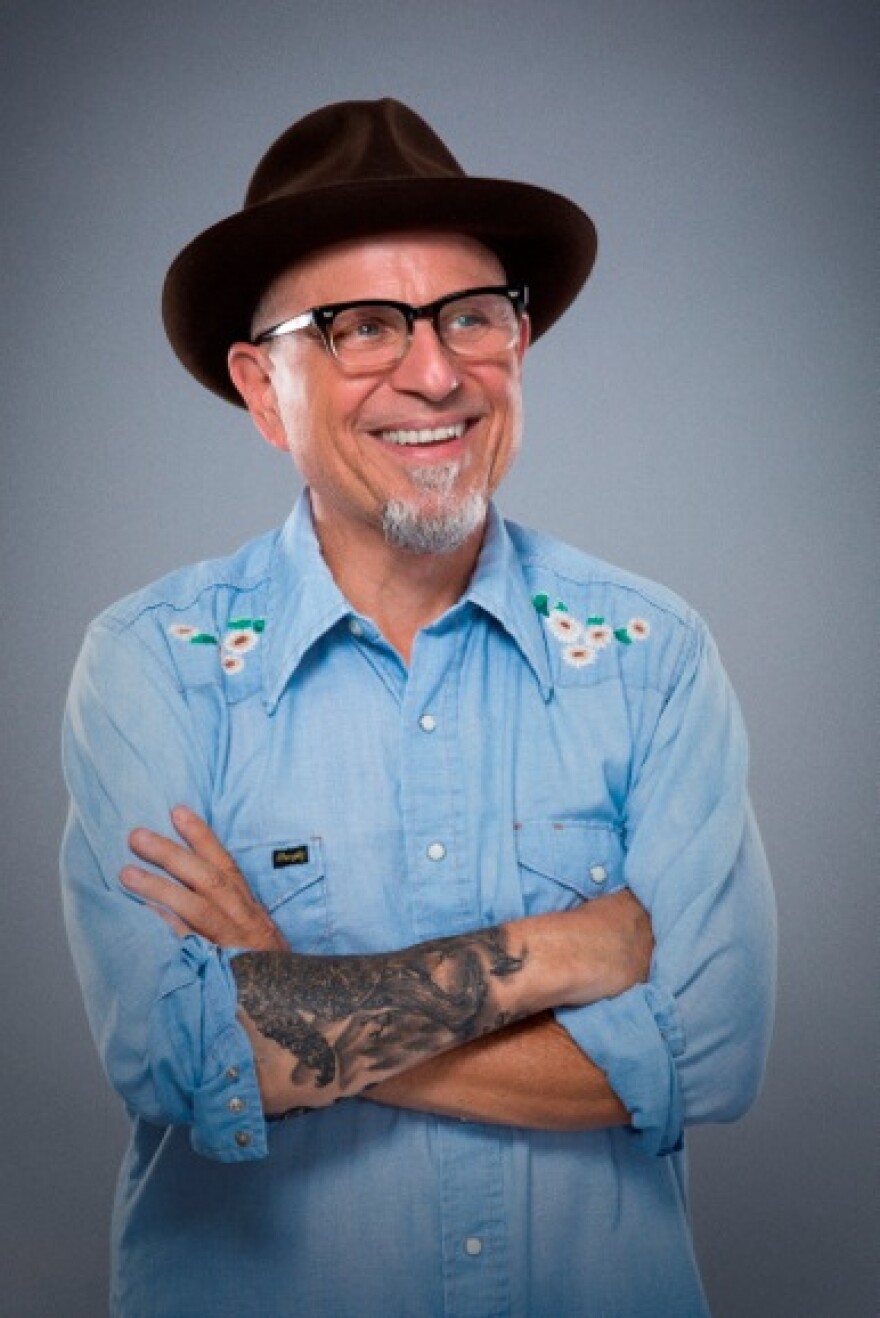Bobcat Goldthwait has been known for 40 years for his highly unconventional approach to comedy, and more recently for writing and directing in film and television. Saturday night, the Tallgrass Film Festival will give Goldthwait their annual Ad Astra award, given to luminaries who have dedicated their careers to the cinematic arts.
KMUW's Fletcher Powell reached Goldthwait at his home in Los Angeles ahead of his appearance at the festival to talk about his work and the motivation behind it.
Interview Highlights
On the transgressive nature of his early standup:
I think because of the movies I appeared in (like Police Academy), people dismissed what my standup was about... it was angry and it was kind of making fun of standup comedy at the same time. My early standup would just be a guy who is going on stage and he shouldn't be on stage. But he was up there and the character would be reading a Dear John letter and then just break down in tears. You know, "Thank you very much. It feels good to be here." And then I'd be in tears: "It doesn't feel good to be here!" And then I go back to my act.
I'd just like to challenge the audience and the people when they came to see me. And then eventually people knew kind of what to expect so that no longer was something I could do on stage... Now, you know, I can do the same thing I used to do in standup, but within the context of a movie, where you think you're going to see one thing and then it's something else, which usually always happens in the movies I make.
On being compassionate as a filmmaker:
I think that when you're making these movies and telling these stories, it better be fulfilling and it better be a pleasant experience for the people around you or you're being a hypocrite... It's like, "hey, let's make a movie about kindness" and then you're on the set screaming at people.
It's fascinating to me where that's a case where people perpetuate these personas that seem like they're sweet and then they're not or they're I mean — that's the thing I will say about Robin (Williams), was if you met him on the street, he was going to be funny and he was going to be very nice to you, and he was gonna even entertain for you. So he wasn't that person, a different person offstage. He genuinely did care about people.
On the death of his friend Robin Williams and how we tend to make other people's deaths about ourselves:
When Robin passed away... I got to see some of that. His son Zak came up with a term, it's "competitive grieving." When someone passes away, people... want to tell you how close they were. I've always been very private about when Robin passed. A lot of people wanted me to do interviews and things. And I don't begrudge anybody that does do that kind of thing. But we were really, really close friends. And part of that was because I kept that relationship very private. So, you know, now that he's gone, I'm not about to weigh in on how he really saw the world and people.
It's fascinating, because he meant so much to so many people, obviously, and many people felt such a connection with him that, you know, I remember saying to his kids, "One of the most beloved entertainers in the world passed away and on that same day your dad died." And that's how I view it. It's like, one of the most beloved people ever in show business died. And then my best friend passed away. And they're two different things.
On how his own struggles inform his creative work:
Even though the movies are very silly or even if my standup can be perceived as silly, there's always, like, some sort of rage or pain that I'm working through in the stuff I create. So that's why, you know, I've never pursued doing what would be a commercially successful comedy. Like a big, broad comedy, where at the end we learn some lessons, like that "old friends are the best friends" and some theme like that. The themes in these movies are always something that I'm trying to figure out myself.
Like with (the movie) World's Greatest Dad. You know, "I used to think the worst thing in life is ending up all alone. But the worst thing in life is ending up with people that make you feel all alone." That was the germ of making that movie.
Each time out it's usually something I'm working through myself. And I never realize it, too, that's really funny. There's always that day on the set, be it Robin or Joel Murray, looks over at me and they say, "I'm playing you." And I go, "no, no, no." But my daughter will go, "Yeah, yeah, they're playing you."
-
Bobcat Goldthwait will be at the Tallgrass Film Festival tomorrow night to receive the festival's Ad Astra award. The presentation will be followed by a screening of Goldthwait's film World's Greatest Dad and a late-night screening of his directorial debut, the 1991 cult movie Shakes the Clown.


